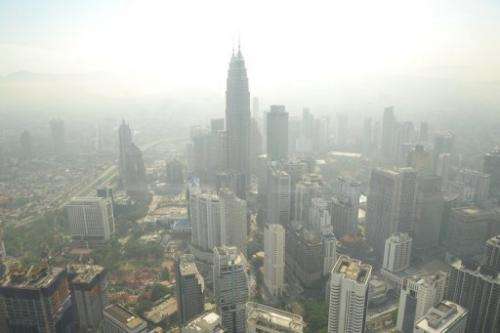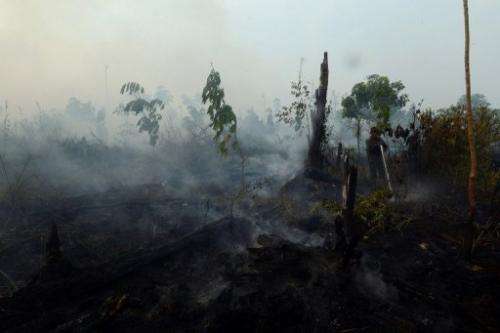Haze-hit nations say ASEAN meet unlikely to clear the air

Five Southeast Asian nations meet later on Monday to discuss the hazardous smog that blights the region every year but the affected countries hold little hope of a permanent solution.
The officials from five ASEAN countries that form the bloc's "haze committee" will hold two-day talks on Indonesian forest fires before environment ministers head into a showdown Wednesday.
Forest fires on the Indonesian island of Sumatra in June left neighbouring Singapore and Malaysia choking on hazardous levels of smog from the worst haze in more than a decade.
The air pollution put off tourists, forced schools to close and caused a spike in respiratory illness.
But the two most affected nations and green activists hold little hope of a significant outcome.
Singapore Prime Minister Lee Hsien Loong admitted in early July the forest fires in Indonesia would take "a very long time" to eradicate because of sheer size of the country.
"I know that there will be a spirit of cooperation but I think solving the haze issue will take a very long time, with the best will in the world," he said.
Malaysia's environment minister Palanivel Govindasamy refused to be drawn on immediate solutions to the haze which sent pollution levels to a 16-year high, forcing a state of emergency in two southern districts.

"Our job is to work closely with Indonesia and our ASEAN partners on the haze meeting. Once an agreement is reached we can go forward," he told AFP after stressing "long-term solutions" would be the focus of the meeting.
The three nations along with Brunei and Thailand have met on 14 previous occasions since 2006, but have little to show for it.
T. Jayabalan, a public health consultant and advisor to Friends of the Earth Malaysia, said Southeast Asian governments had for almost 20 years adopted a "lackadaisical attitude" towards resolving the problem.
"We need solutions rather than talk and talk," he told AFP.
"No concrete measures have been taken because any measures imposed will impact (palm oil) companies' profits."
The main obstacle appears to be internal Indonesian politics, as slash-and-burn remains the cheapest—albeit illegal—way to clear land for agriculture.
Jakarta has sought parliament's approval to ratify a 2002 pact on haze pollution which has been signed by all its partners in the Association of Southeast Asian Nations but the proposal was rejected in 2008.
The treaty had been resubmitted to the current legislature, although no timeline for ratification was given.
Singapore and Malaysia have demanded Indonesia punish those behind the blazes, but Jakarta has hit back, saying fires have also been set in plantations owned by its neighbours, especially Malaysian palm oil firms.
An analysis by the World Resources Institute on the mid-June haze revealed that half of the fire alerts in Sumatra were in oil palm and pulpwood plantations.
It urged the countries at the meeting to take legal action and impose a strict no-burn policy.
"They should agree on a plan where concession data is consistent between government agencies and companies, criminal burning of forests is investigated and prosecuted, and better management practices are instituted across the region's forest lands," it said.
The haze has been a bone of contention in ASEAN for nearly two decades, with the worst haze crisis in 1997-1998 estimated to have cost the region $9 billion.
© 2013 AFP





















